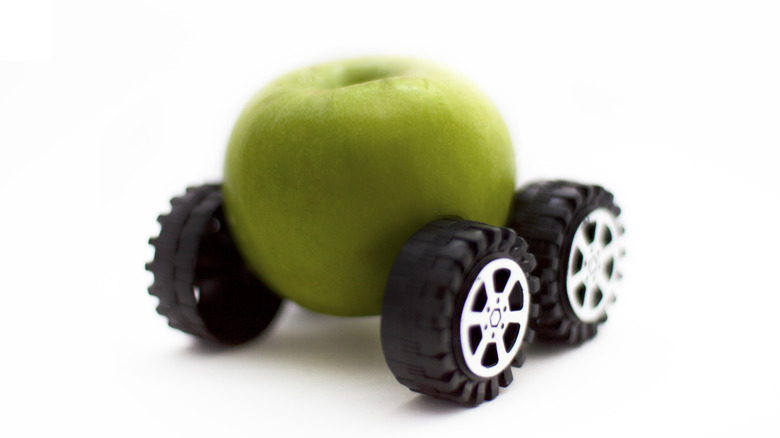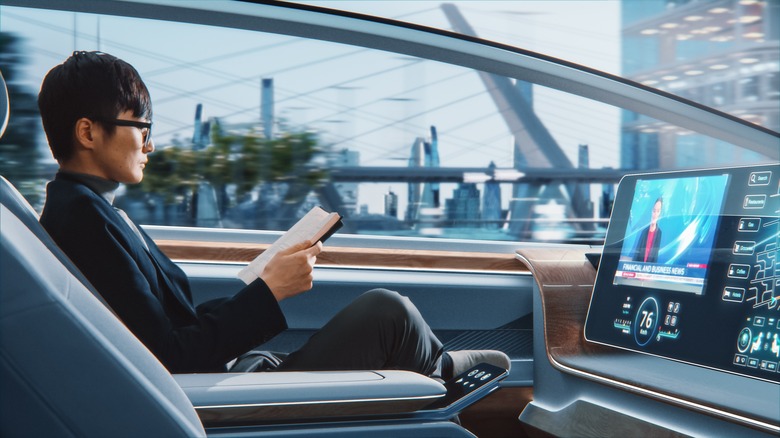Apple's Self-Driving Car May Not Be As Autonomous As We Expected
Despite a November leak suggesting an impending release date for an upcoming Apple autonomous electic vehicle, more recent news suggests the automobile may arrive later and less autonomous than early adopters were hoping.
Per Bloomberg, Apple has postponed the debut of its self-driving electric car from 2025 to 2026. Bloomberg cites sources at Apple that say the autonomous EV, called "Project Titan," will also not be extremely ambitious in terms of engineering. In addition to shifting the release date, the same sources indicate Apple will be scaling back Titan's fully autonomous features. The vehicle will now include a steering wheel and pedals, and, at least at first, will only be fully autonomous on highways.
Would-be manufacturers of self-driving cars have experienced several setbacks lately. Tesla's FSD, which despite standing for "Full Self-Driving," is a driving assist rather than fully autonomous. It has also bugged badly enough to warrant recalls. The NHTSA has set far stricter guidelines for autonomous and assisted driving in the wake of multiple well-publicized crashes of driverless cars. Argo AI, a major player in early research in autonomous driving, has shuttered after major investors Ford and Volkswagen pulled out.
Is the future driverless or not? In the end, it will all come down to levels.
Self-driving to nowhere?
At SlashGear, we've seen this pattern before. Autonomous car manufacturers have a habit of making major claims, then scaling back as difficulties ensue.
It all comes back to levels. As J.D. Power reports, there are five levels of autonomy in car design, from Level 1, where no driver assists exist, to Level 5, where a vehicle can operate itself in any setting, with no human input required. In terms of the development cycle of autonomous cars, companies in the theory phase confidently predicted quick manufacture and widespread adoption of Level 5 cars.
In practice, companies seem to have landed between Levels 2 and 3. In the former, a car requires human intervention but offers driver assists for both braking and steering. With the latter, a car can largely operate itself but may require limited human intervention in certain situations.
Level 2 is widely available now. Comprehensive driver-assist systems like Tesla's FSD, GM Super Cruise, Volvo's Pilot Assist, and others all qualify. As for Level 3, that's what Apple intends to achieve by 2026. Honda has achieved this, but only on a small scale. Other companies have a time frame similar to Apple's. The widespread adoption of autonomous cars is unquestionably coming, but deployment has proven more complex and demanding than manufacturers, Apple included, had anticipated.

